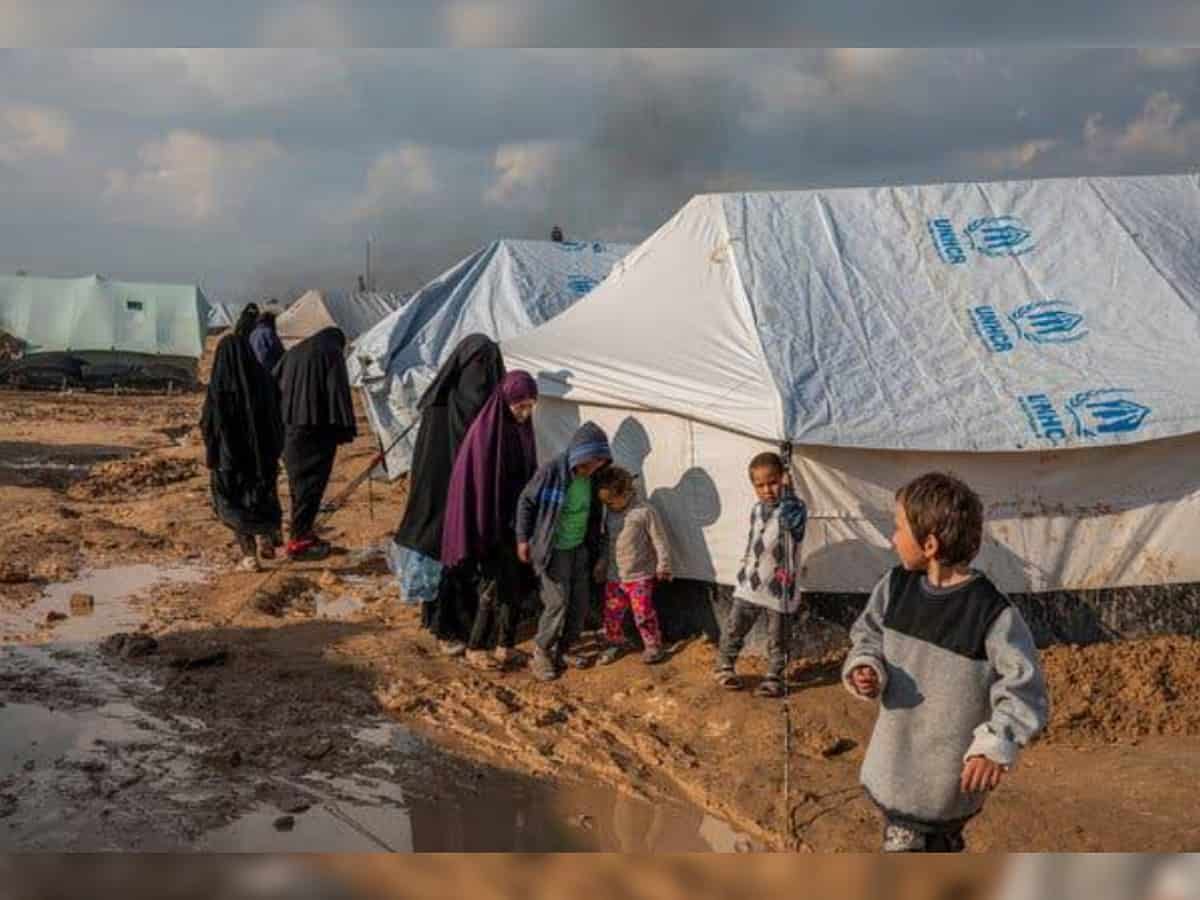
The Chinese social networking site TikTok gets about 70 percent of the donations made through its application, to hundreds of displaced families living in Syrian camps, according to a BBC investigation.
BBC investigation also highlighted that more than 300 accounts are broadcasting live from the Syrian camps, adding that many of them reap up to $1,000 per hour as gifts, but the displaced families say they only get a very small part of the money.
How do Syrians get money?
According to the report, every day many displaced families in the Syrian camps appear in a live broadcast to beg viewers to give them virtual gifts. They repeat phrases such as “like please, share please, gift please.”
The gifts they are asking for are virtual, but mean real money, and can be withdrawn for cash from the app.
The BBC revealed that this was done with the help of ‘TikTok middlemen’ who provided devices for refugees to go live on the platform.
TikTok middlemen said that they operated with agencies affiliated with TikTok in China and the Middle East. The report said the agencies are part of TikTok’s global strategy “to employ live broadcasts and encourage users to spend more time on the app.”
TikTok pays them a commission based on the duration of the live broadcast and the number of gifts donated.
To test TikTok’s gifting system, the BBC asked one of its journalists to broadcast live from his Syrian-based TikTok account. The BBC donated $106 to the journalist’s account via TikTok’s live-gifting system. The journalist received $33.03, per the report.
After further scrutiny of the donation process, the investigation team concluded that TikTok deducts 69 percent of the value of the “virtual gift.” After that, the money transfer office deducts 10 percent for its services, and the TikTok middlemen charge 35 per cent of the remaining money.
By the BBC’s estimate, after the commission taken by money transfer shops and middlemen, a family would get just $19 from a $106 donation.
“We are deeply concerned by the information and allegations brought to us by the BBC, and have taken prompt and rigorous action,” TikTok told the corporation.
However, when the BBC tried to report accounts it found begging, TikTok moderators said there was no violation of its policies. Furthermore, the app refused to disclose to the BBC how much it charges for its live-streaming gifts.
